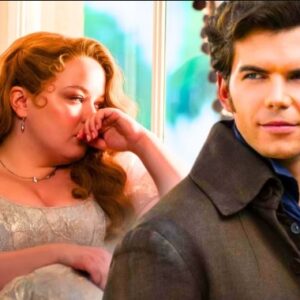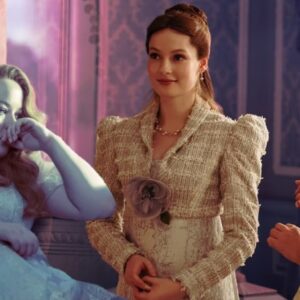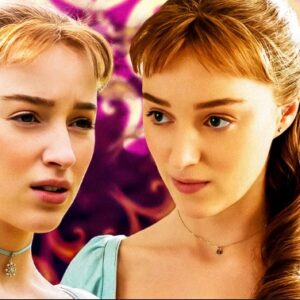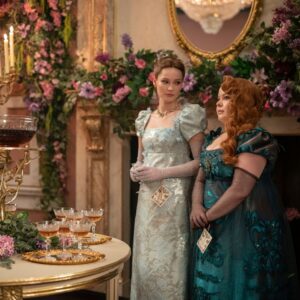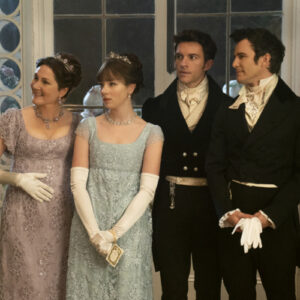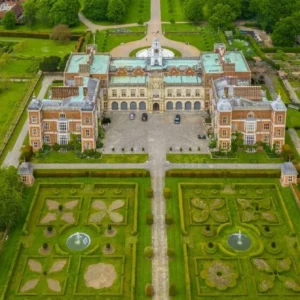A theater professor talks about the two terms and how he sees them playing out on stage and screen
As Lady Whistledown might say, the ton is enthralled with the new season of the Netflix hit Bridgerton. The romance is a big draw, of course, but so is the diverse cast, which marks a departure from the English Regency-era novels the show is based on. The duke is Black. The queen is mixed-race. In season two, the main love interest, known as Katherine Sheffield in the book, is now Kathani Sharma, played by an actor of Indian descent.
Some have called the casting color-blind, others, color-conscious. The definitions of the terms can vary. Some say that color-blind casting overlooks race, so people of color can take on historical roles or other parts traditionally played by white actors. Color-conscious casting, on the other hand, acknowledges race, including the injustice and discrimination that often goes along with it, and can even use it to reimagine a performance or show. Lin-Manuel Miranda, for example, has said that in writing Hamilton, he was comparing Alexander Hamilton’s rise in the world through the power of his words to that of a hip-hop artist, so there was a clear reason to cast Black and Latinx actors.
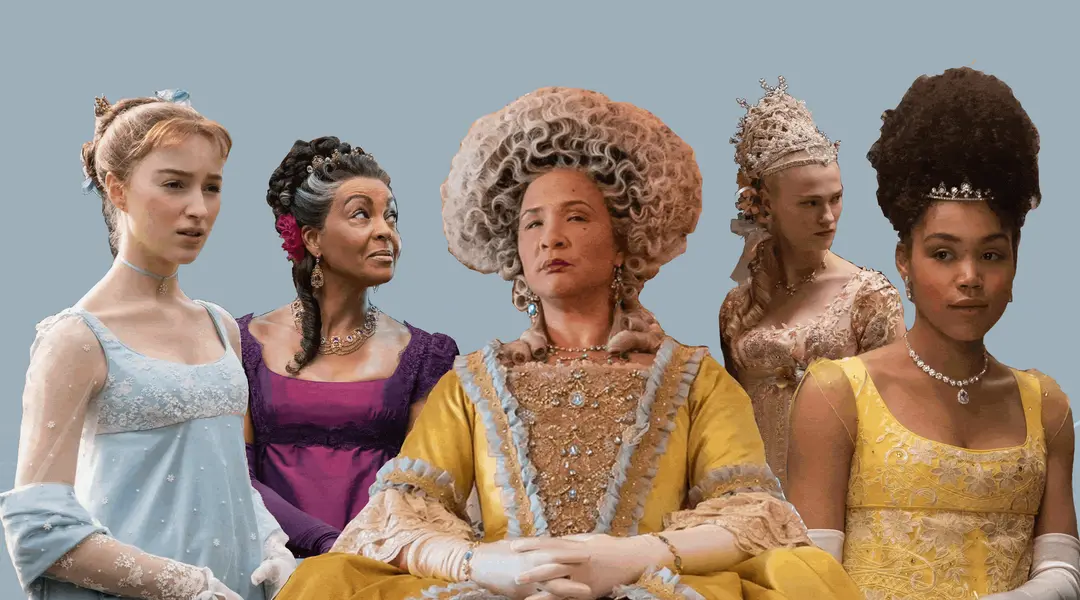
Maurice Emmanuel Parent is a professor of the practice in the Department of Theatre, Dance, and Performance Studies. He is co-producing artistic director of the Front Porch Arts Collective, a Black theater company committed to advancing racial equity in Boston. Here, he talks about how he views the terms color-blind and color-conscious and how he sees them playing out on stage and screen.
Tufts Now: What is color-blind casting?
Maurice Emmanuel Parent: From my experience as an actor and the ways I’ve been cast, the idea is that you can cast the best performer for a role regardless of their race. I’ve mostly engaged with it around Shakespeare. No one is going to cast all Italians to play in Romeo and Juliet, even if that is historically accurate, so there’ll be some actors of color.
That’s how I was cast as a French prince in the Elizabethan era. The root of color-blind casting is that color doesn’t matter to the performance on both ends—it doesn’t matter to the actors, because they are playing a role, not themselves, and it doesn’t matter to the audience in how they engage with the work.
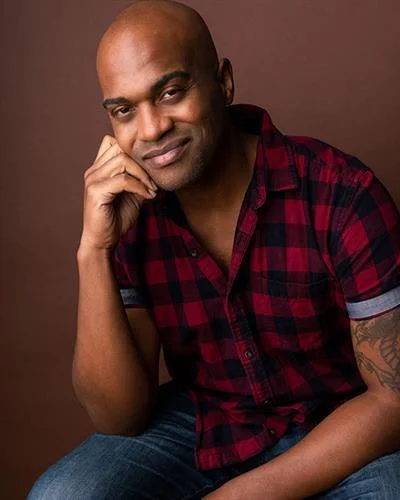
Maurice Emmanuel Parent is a professor of the practice in theatre, dance, and performance studies.
Photo: Nile Hawver/nilescottstudios
On the surface, that sounds appealing, because it means that any actor can be considered for any part. Is that a problem?
What’s problematic is that it assumes that people are color-blind, which is a fallacy. Even though the play may not talk about the fact that I am a Black man, for the person sitting in the audience, that is the first thing they will notice when the curtain comes up. Because it does matter. If color-blind were truly a thing, then why even call it “color-blind casting”? Why not just call it “casting”?
Color-blind casting can seem arbitrary, or worse, have unintended consequences. If an audience sees an entirely white cast and a Black person playing the villain, they will react to that. Or I was in the ensemble for a production of Camelot once, and I was the only Black person on stage. Several of us would die and come back as other characters, sometimes a few times. And it just so happened that I was always the character to die first. Like, did no one think of this?
What is color-conscious casting?
I would define it as taking inventory of the bodies you’re putting in roles and just having awareness of what it means. What are we evoking by putting this person with this particular racial background in this role? There are gradations in what happens next. It could just be a conversation within the production about the history that you’re bringing with that race into this role. When I played the prince, for example, having my body in a place of authority was meaningful enough—we didn’t have to rewrite the play. At the other extreme, Jocelyn Bioh is a Black playwright who took Shakespeare’s Merry Wives of Windsor and set it in an area of Harlem with a large West Indian community, so the cast is completely West Indian and the show is infused with West Indian culture. They consciously cast the show that way to make a statement about the play or the culture or both.
In our theatre company, the Front Porch Arts Collective, we did a production of The Three Musketeers. We consciously decided to do a predominantly BIPOC cast to honor author Alexander Dumas, who was a person of color, although that is not well known. We talked about it in the rehearsal room, but we didn’t necessarily rewrite the script. There were some elements of culture thrown in—we had some hip-hop playing during one of the battles and some of the female actors wore their hair in braids, which wasn’t period appropriate, but it made them feel powerful, like soldiers. Color-consciousness can be subtle invitations like that. But for the most part, we allowed the bodies to tell the stories and invited the actors to be their full selves in the language, to imagine themselves in these roles that weren’t written for them.
Have you watched Bridgerton? Do you consider it color-blind or color-conscious?
I haven’t watched season two yet, but I loved season one. I think [Bridgerton producer] Shonda Rhimes was quoted as saying that she just loved these English high-drama novels, but she never saw anyone in them who looked like her. So she wrote one where we were in it. For me, it’s color-conscious. If the only Black man had been the handsome duke who was wooing everybody, then you might be playing with the idea that Black men are very sexualized and always tempting white women. But the cast is very mixed, at all class levels, and everyone is equal in the storytelling.
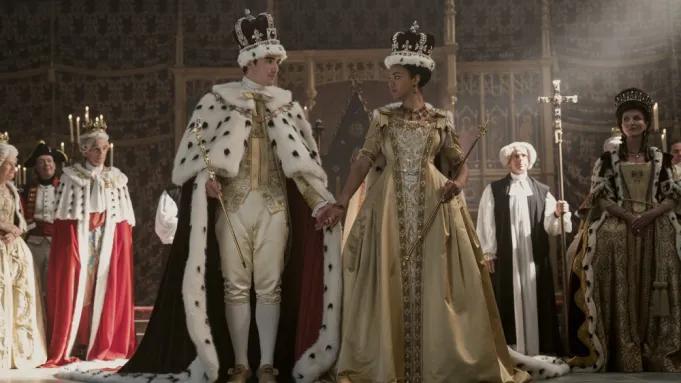
If color-conscious casting opens the door to reinterpreting a work, who does that reinterpretation? Is it the director, the scriptwriter, the actor—or is it all in the eye of the audience?
It can be all the above, but I think it has to begin with the director and producer. They have to ask the questions of what the casting conveys. If they don’t have all the answers, they should bring people to the table who will help them find the answers. Then they keep that information in mind as they are crafting this piece of art. If you include this awareness in the art-making process, the audience will get the message you want them to get.
As the performing arts move from color-blind casting to color-conscious casting, are things going in the right direction?
Definitely, and it’s going hand-in-hand with more writers of different backgrounds, like Shonda Rhimes, creating new work. Or writers creating stories of the queer experience or the gender spectrum or differently abled people. So people can step into roles as the people that they are.
